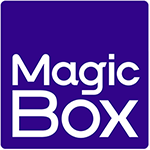Transforming Digital Learning: Creating Engaging, Personalized, and Inclusive Experiences
In the realm of modern education, digital innovation goes beyond merely facilitating online learning. As highlighted by UNESCO, there’s a pressing need for digital learning platforms and K-12 publishers to align with the UN’s “Sustainable Development Goal 4,” which emphasizes quality and inclusive education alongside lifelong learning opportunities for everyone.
Today, digital learning serves four pivotal functions: ensuring equitable access for all learners, fostering lifelong learning pathways, enhancing learning management through robust tools, and tracking educational progress with data-driven insights. These elements indicate that digital learning must be about more than just content delivery; it should actively nurture inclusive, personalized, and sustainable educational experiences.
Expanding Beyond Content: Strategies for Inclusive Digital Learning
Accessibility and Flexibility
To provide quality education accessible to all, regardless of geographic, socioeconomic, or ability factors, the seamless availability of resources is paramount, including offline access as stressed by UNICEF.
K-12 publishers need to prioritize multi-device compatibility when developing content. Implementing features like text-to-speech and video captioning is vital for supporting learners with disabilities. Additionally, materials should be translated and adapted to accommodate cultural sensitivities and regional regulations. Compliance with standards such as LTI, WCAG, and ePub 3 is essential. Utilizing digital creation and distribution platforms with eReaders that facilitate offline learning can set publishers apart.
Engagement and Interaction
In today’s distraction-filled environment, keeping digital learners engaged is challenging. UNESCO recommends adopting an active participation model for digital learning rather than relying solely on passive consumption of information.
For K-12 publishers, this presents an opportunity to showcase a commitment to learner success. Incorporating multimedia and gamified content helps maintain student focus. Interactive eBooks with features like highlighting, annotations, embedded note-taking, and links to supplementary resources can captivate learners. AI-driven platforms are also essential, offering instant support for student inquiries to prevent disengagement. Ongoing gamified assessments, leaderboards, and discussion forums are vital for ensuring sustained progress.
Personalizing Learning Pathways
A student-centric approach is essential, where effective digital learning adapts to individual preferences and pacing. Personalization should span from educational goals to assessments and feedback.
An IEEE report indicates that personalized learning recommendations can significantly enhance learners’ engagement by aligning educational content with their interests, thus promoting effective eLearning.
In a highly competitive landscape, K-12 publishers that embrace platforms equipped with learning analytics empower educators to tailor experiences. Analytics provide valuable insights into students’ strengths and weaknesses, empowering immediate feedback and reinforcement of concepts, ensuring learners remain invested in their journey.
Overcoming Challenges in Differentiated Learning
While K-12 publishers excel in content creation and instructional design, the digital education landscape presents additional challenges.
AI Training
Biased AI models have led many businesses to lose out on potential customers. Establishing unbiased AI algorithms is crucial for the ethical and fair application of technology. Automated systems in educational contexts, such as grading, should always incorporate human oversight, ensuring fairness and accuracy.
Resource Management
Managing diverse K-12 content presents challenges, especially with the need for multilingual support. Manually overseeing this complexity can quickly become overwhelming. Centralized, cloud-based resource management solutions streamline content access and organization, allowing for personalized student assignments with ease.
Security and Privacy
In the Information Age, data is invaluable. K-12 publishers should utilize content authoring platforms with robust digital rights management tools to protect intellectual property. Essential features include role-based access and screen capture prevention, while compliance with regulations like COPPA and FERPA is paramount for maintaining student privacy.
Social-Emotional Well-Being
As noted by UNICEF, education is a profoundly social experience. K-12 publishers need to prioritize the social-emotional well-being of learners. This can be achieved by fostering collaboration, reducing assessment anxiety, and promoting tolerance for differences. Partnering with an EdTech provider that facilitates global collaboration can dismantle the barriers imposed by geography.
Looking Ahead
To fulfill the vision of inclusive, equitable, and quality education, publishers must evolve from merely delivering digital content to creating enriching, engaging, personalized, and secure learning experiences. By embracing innovative technologies and fostering strong collaborations, they can pave the way for a future where every learner can thrive.
References
[1] What you need to know about digital learning and the transformation of education
[3] A Comprehensive Study On Personalized Learning Recommendation In E-Learning System

MagicBox
MagicBox™ is an award-winning digital learning platform tailored for K-12, higher education, and enterprise publishing. It empowers publishers, authors, and content creators to craft, distribute, and manage rich, interactive content.



